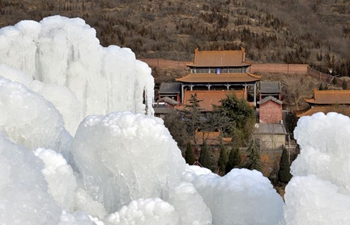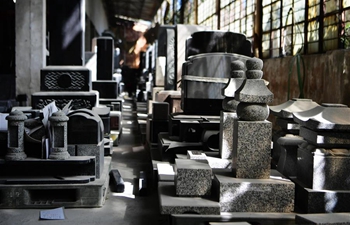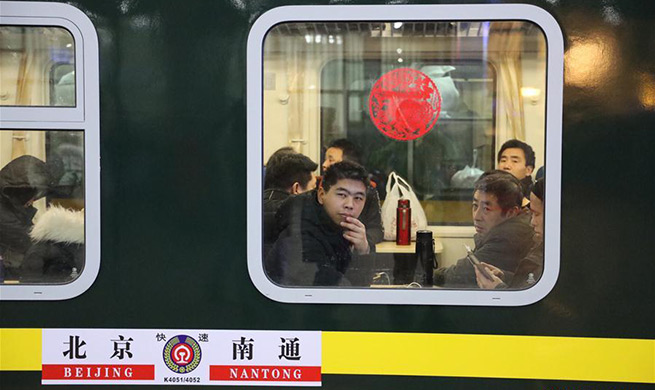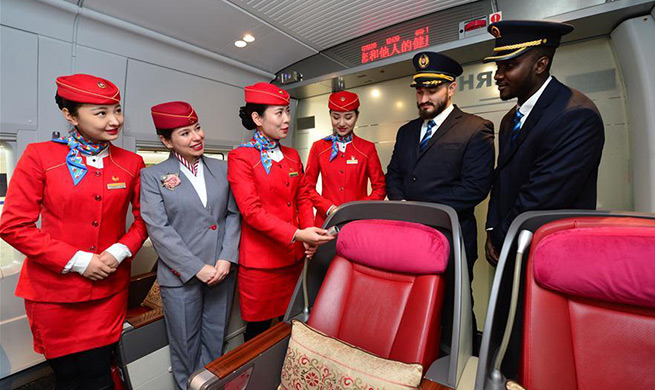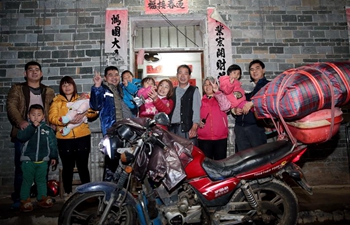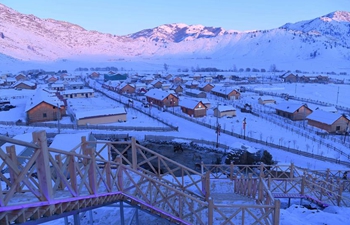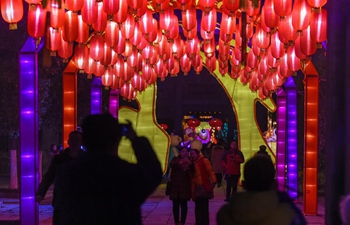GUANGZHOU, Jan. 21 (Xinhua) -- China's three busy water bodies have recorded "considerable reductions" in ship emissions since 2015 when vessels there were put under stricter emissions limits.
Oxysulfide and particulate emissions from ships in the Bohai Sea area, the Yangtze River Delta and the Pearl River Delta in 2018 were 33 percent and 22 percent lower than those of 2015, said Cao Desheng, director of the maritime affairs bureau of the Ministry of Transport.
The reductions were achieved following actions to cut ships' fuel consumption and pollution in the regions, Cao said Sunday at a maritime affairs conference in the city of Shaoguan, Guangdong Province.
The ministry in December 2015 set up ship emission control zones in the three water bodies in a drive to improve air quality, particularly in port cities in the zones.
A new regulation issued in November 2018 expanded the zones to encompass all of China's coastal regions and the main streams of the Yangtze River and the Xijiang River, a river in the Pearl River system. It also requires ships in those regions to use fuels with lower sulfur content.
The three water bodies lie in the same areas as China's three urban agglomerations and industrial powerhouses, which have been wrestling with air pollution generated by their booming industrial and transport sectors.







